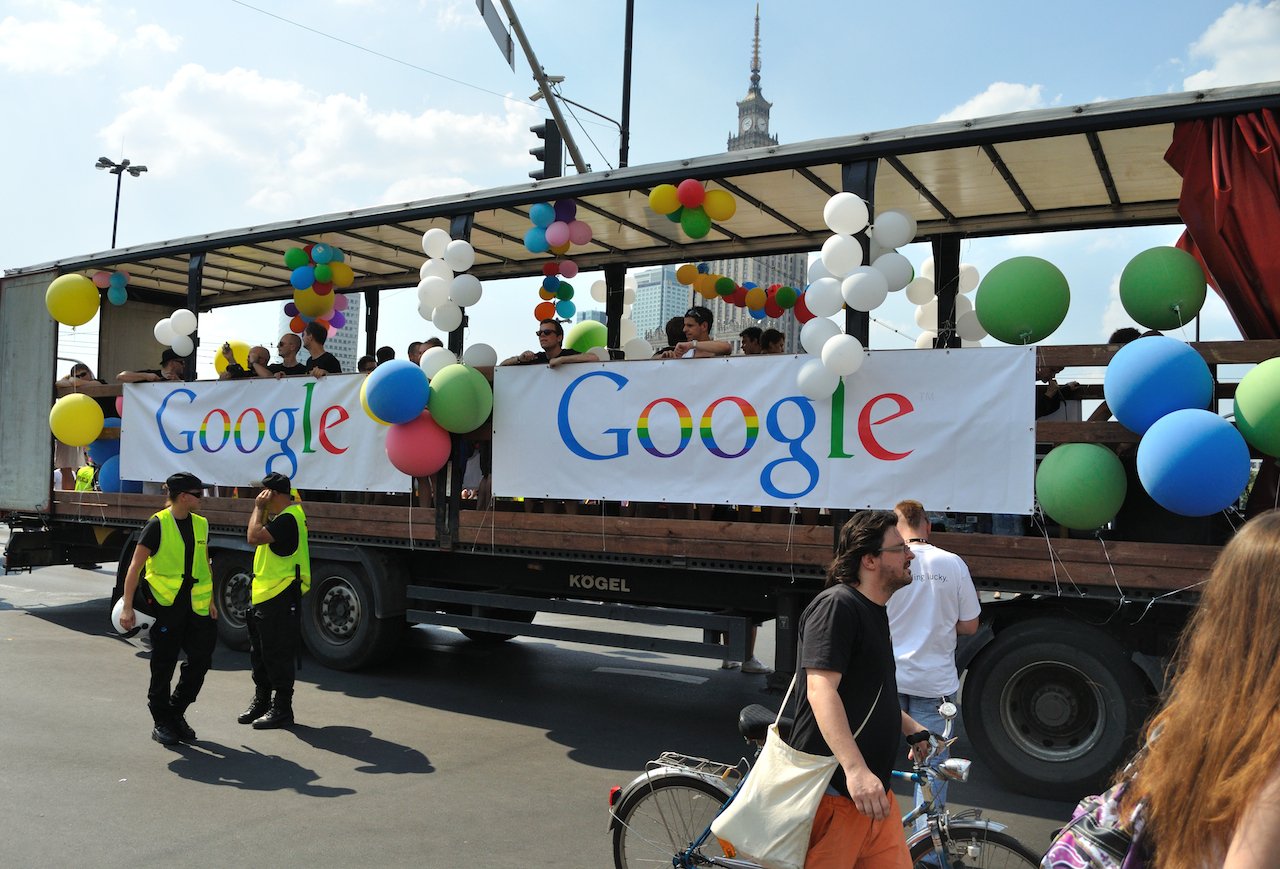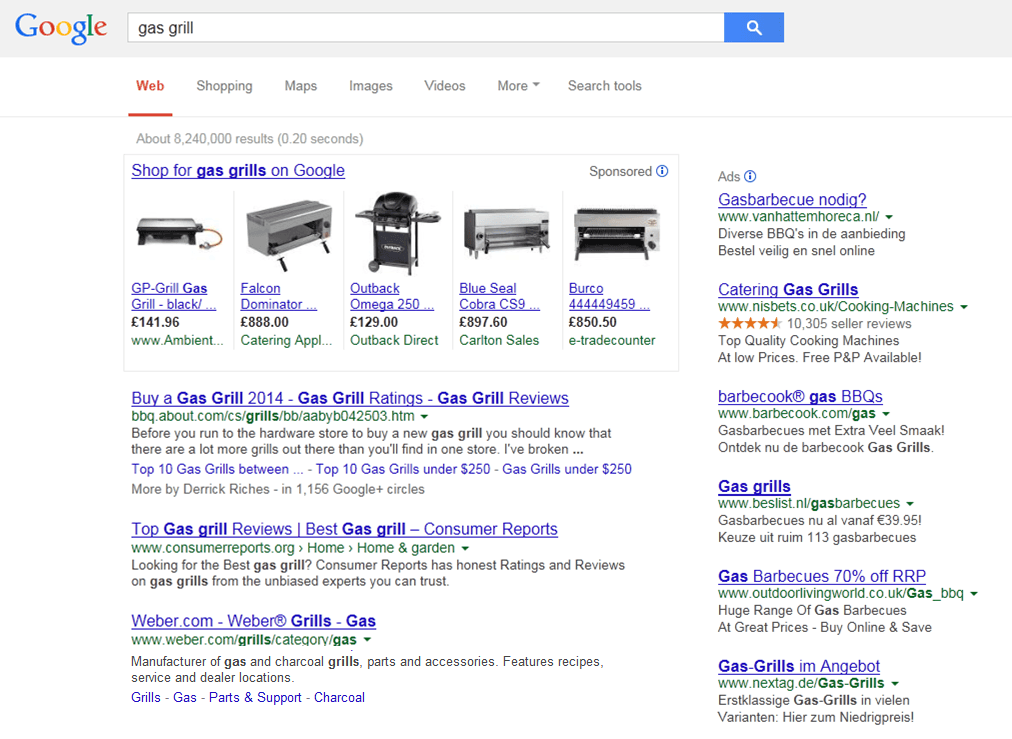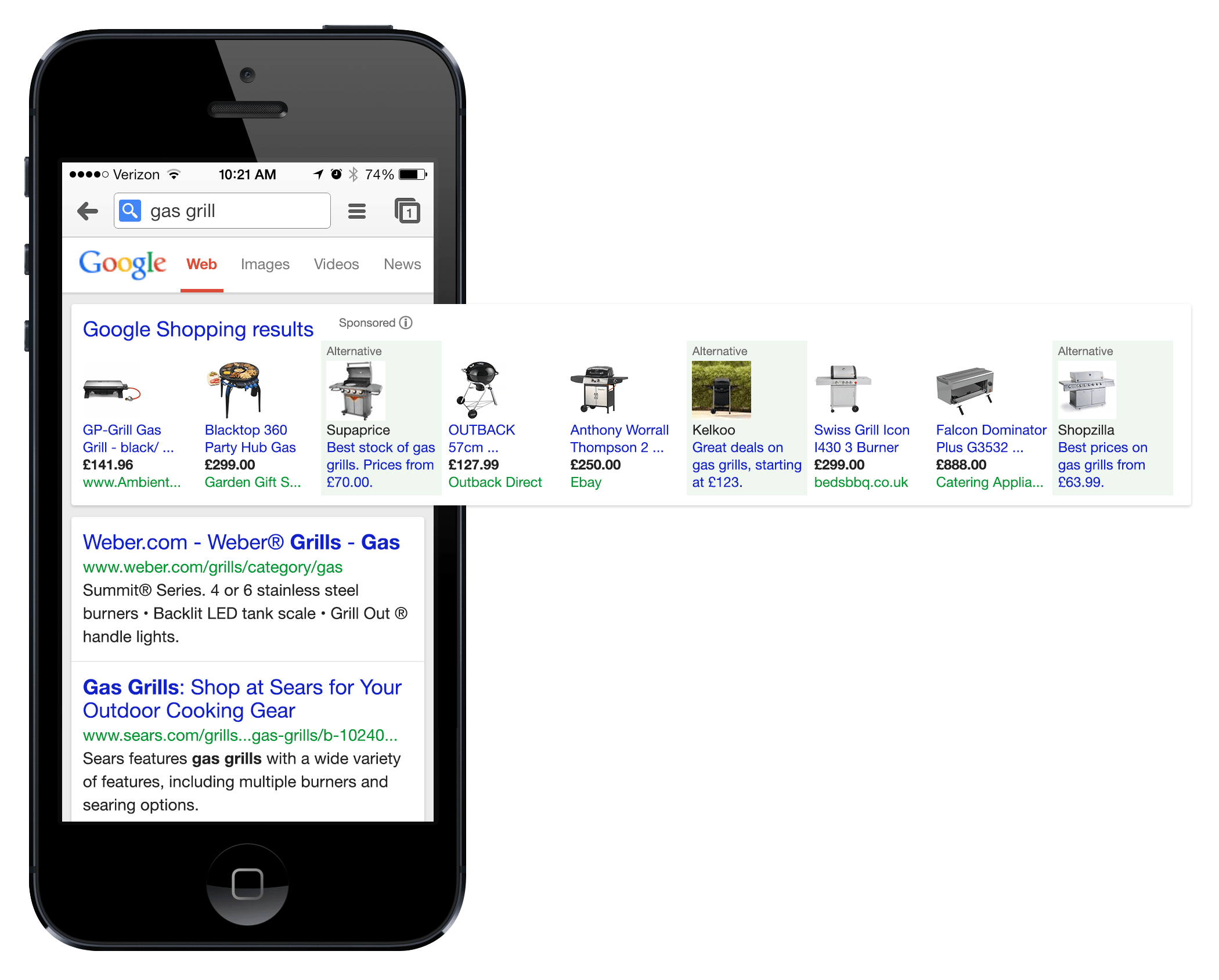Four years ago, if you would have asked Joaquín Almunia what he knew about the search engine market, he would have probably asked you to repeat the question.
The 65-year old Spanish politician who entered the European Commission - Brussels’ executive arm - in 2010, will be ending his tenure later this year as Commission Vice President and Commissioner for Competition as a self-described "expert in the search engine field", widely waited on and listened to as "three years, six months and some days" passed between negotiations with Google (and one supposed NSA hacking of his cellphone) . The subject of which was what the Commission said was anti-competitive behaviour on Google's part following complaints from the search giant’s rivals, based on Article 9 of the EU’s antitrust regulation.
Fine dodging
The result: Google is not having a possible five billion euro fine placed upon its business (10 percent of profits has been usual recompense in such cases) and the compromise reached will suffice to close the case or not inspire further fines for five years - once the decision is final, and they comply with the changes promised in this particular field … Or will it ?
This remains to be seen, as the next steps may take months, and by that time Commissioner Almunia will be gone. You see, this year is both a European election year and the year that the Commission changes its staff (once every four years). These two things are co-dependant, depending on who gets voted in the European Parliament impacts who gets placed in the European Commission.
Almunia mentioned that the decision will take some months; the legal path is to now reply to the complainants (rivals of Google, as Almunia refers to them), and also processing the decision internally in the Commission. He didn’t seem too concerned with the transference of power to another Competition Commissioner, while most reported the pact as a fait accompli.
Google’s Kent Walker, Senior Vice President and General Counsel, released a quote through the Brussels office underlining that the company will be making significant changes to "the way Google operates in Europe".
"We have been working with the European Commission to address issues they raised and look forward to resolving this matter," Walker said. Quite the understatement, compared to the stresses the Brussels’ Google office has gone through the last three years to arrive at such a point, sighing audibly across Leopold Park at the announcement I’m sure.
"After a careful analysis of the last proposals we received from Google last month, and intense negotiations that managed to further improve what Google sent to us in mid-January, I believe that Google's new proposals are capable of addressing the competition concerns I set out to them. Therefore, from now on we will move forward towards a decision based on commitments,” Almunia said at the press conference held on February 5 at the European Commission’s daily mid-day briefing.
Google’s new guard dog
Google’s compliance with this package of commitments is now to be supervised by an independent monitoring trustee who would play an active role in advising the Commission in how Google would implement the measures, Almunia stated on February 5, but what does this actually mean?
"Once the decision is adopted we will be extremely careful in choosing the best monitoring trustee possible, the best requirements possible; the body which will develop this team will hold a very very important function in this kind of decision," Almunia said.
When tech.eu asked Google, ICOMP (the group representing the complainants) and Almunia’s office to comment on whether this would now be another agency/person/institution and the journalists present in the press room asked what the budget for such a monitoring body would be - none of us got any real answers to those vital questions.
The monitoring authority, it seems, has not been predefined and will most likely be so following the final legally-binding decision that the anti-competitiveness negotiation has been accepted with the latest terms from Google.
In selecting the monitoring trustee, the European Commission will make sure that they will be able to fulfil responsibilities (which are not small), a regular report and an obligation to send reports every time they receive information about a possible breach of commitments.
"Certain stakeholders consider that Google should not automatically be in the results it shows. I disagree, our objective is not to interfere in Google’s business. Google should not be penalised, but rivals should have equal access," Almunia said.
Why did it take three years?
The Commission stated that it was not the legal means it used which were so time-consuming but rather the 'innovative nature' of the market they had to deal with.
"Three years ago, these search results would have looked completely different," Almunia said.
In the United States, the Federal Trade Commission also had a similar case looking at the competitiveness of Google, and came up with a similar statement on innovative business creating the market share instead of anti-competitive behaviour.
"Google is of course not going to stop innovating, and no one would ever want it to," the Commissioner said.
The immensity of the search engine market was portrayed quite poetically by Almunia, who noted that every user receives different search results, others outside the EU see different results, and the nature of the services flow and change constantly.
"It’s in the nature of their quality" that they change, the Commissioner noted.
"Tomorrow, in one week, in one year, services will be presented in a new way, new services will be created and served by Google," Almunia added.
Competitors up in arms
ICOMP’s statement following the decision was non-belief that Google has, “any intention of holding themselves to account on these proposals, and given the catastrophic effects on the online ecosystem that a proposal that doesn’t hit the mark will have. We would implore Commissioner Almunia to allow a full third party review of their submission as the very least the Commission can do in this landmark case.”
Michael Weber, director of German mapping provider hot-map, said in response to this decision that Commissioner Almunia's announcement sounds like there might be “a move in the right direction, but the two previous Google proposals were only rejected once the public could see them, and any concerned party was able to analyse and comment them. The details and possible loopholes of the proposal will be crucial, so this again calls for a formal market test."
"So far, the European mapping companies have been left without a clear commitment that Google Maps' preferential placement falls under any Google proposal. Also, many issues outside of the Commission's four initial concerns remain unaddressed, most notably the cost free dumping syndication of Google Maps on millions of websites,” Weber added.
FairSearch Europe stated that its concern is that the proposed commitments lock in discrimination and raise rivals’ costs instead of solving the problem of Google’s anti-competitive practices, Thomas Vinje stated in a release from FairSearch just a short while following the press briefing on February 5.
"Google now holds a 95 percent market share of search across the European Union and gives preferential treatment to its own services, which damages competition and gives consumers less choice. The Google proposal requires rivals to pay Google for placement similar to that of Google’s own material, undercutting the ability of others to compete and provide consumer choice. This will be done through an auction mechanism that requires participating companies to hand the vast majority of their profits to Google," FairSearch noted.
Alternatives
But, of course, there are other options, as Commissioner Almunia stated he even uses those other options from time to time by means of the apps on his smartphone.
Microsoft’s Bing is second in the market; before Google arrived Yahoo was a front player in the search engine business, and who can forget the good old Alta Vista?
A Market Place Tech Report by John Moe a while back titled "Can any search engine compete with Google?" quotes Dr. Eric K. Clemons, a professor of operations and information management at The Wharton School of the University of Pennsylvania:
"He recalls running an experiment with students where they were asked to retrieve information using both Yahoo and Google. This was material that wouldn't come up in a search right away, it required digging. And then I had a colleague grade their exercises without knowing which search engine each student had used," says Clemons.
"Then I had some students tabulate the results without their knowing what I was expecting to find.They couldn't find a performance difference between Yahoo and Google."
The Moe article came to the conclusion that through all the interconnected services of Google (which now include Gmail, Google+, YouTube, Maps, News, etc.) the search experience was far more personalised than just search, thus proving an advantage, whilst still remaining technically a competitor of these other engines.
Google’s mission it says is to "organise the world’s information and make it equally accessible to all".
Its #1 rule?
"Focus on the user and all else will follow. Since the beginning, we’ve focused on providing the best user experience possible. Whether we’re designing a new Internet browser or a new tweak to the look of the homepage, we take great care to ensure that they will ultimately serve you, rather than our own internal goal or bottom line."
In Europe, the game has been slightly different but the result has always been evident: Google is gargantuan business. The first time I stepped into the Brussels Google office in 2008 I believe, there were about five to eight people involved, and this was in a small office behind Gare Central; today, as the business and policy demands grow, the office that overlooks Leopold Park is filled with two and a half floors of staff and dedicated individuals.
The conclusion?
“This would not imply that we will not investigate other business practices by Google. In fact, we are already doing so, since we are currently looking at allegations relating to the Android operating system and in the Motorola case we are dealing with Standard Essential Patents," Almunia reminded the press.
Details of concessions
- Google will give content providers an extensive opt-out from the use of their content in Google's specialised search services if they so wish, without fear of retaliation. Up until now, Google was able to copy content from rivals without restriction.
- Google will remove exclusivity requirements in its agreements with publishers for the provision of search advertisements.
- Google will remove restrictions on advertisers being able to run their search advertising campaigns across Google's and competing search advertising platforms.
Below are some examples of what the situation is today and what Google has proposed they will be.
In this first slide, you see the current situation for a search for a gas grill. At the top of the page, you can see only the Google specialised search service with associated pictures.
The second slide shows how this would change with Google's proposal the European Commission specified. There are now links to three rivals next to the three Google specialised results. These now have pictures of the same size and quality as Google's own. Furthermore, the rivals would have full control of how their links look and where they take the user. This is therefore a significant improvement.
The third slide shows what would happen under Google's new proposal on mobile. The size of the screen obviously constrains how many results can be shown overall. Nevertheless, you can see that next to Google's specialised search results, there is now one rival link which is displayed directly with a picture.
There are also a number of additional Google and rival results if the user chooses to scroll across the screen. This is a significant improvement compared to Google's previous proposal where rivals were only accessible after going through an intermediary screen and where even at that point, they did not have the possibility to display a picture, the commission said.
First, given the importance of the choice of visual formats in attracting user clicks, it is essential that the presentation of rival links is comparable to that of the Google services.
Secondly, given the speed with which Google develops its services, that comparability of presentation of rival links has to be ensured dynamically over time. This means that if Google improves the presentation of its services, so must the presentation of rival links.
Finally, in a fast-moving market, any commitments must retain their relevance throughout their lifetime. This means that any new vertical search services developed by Google must also be subject to the commitments the commission underlined.
What happens next
To address these concerns, Google has finally accepted to guarantee that whenever it promotes its own specialised search services on its page, the services of rivals will also be displayed in a comparable way.
In practice, this means that when Google promotes one of its own specialised search services, there will be three rival services also displayed prominently on the page, in a way that is clearly visible to users.
These alternatives will also be attractive: for instance, if Google has a picture to promote its services, which is a key element in attracting users, rival services will also have such a picture. The experiments we received during the market test showed the importance of pictures in attracting user click-through.
And this principle will apply not only for existing specialised search services, but also for future ones: if tomorrow Google decides to display videos, rivals will also be able to display videos.
For relevant specialised search services, Google will display prominent links to three rival specialised search services in a format which is visually comparable to that of links to its own services. For instance, if the Google links have images, the rival links will have images as well, including on mobile devices.
Rivals will have control of how they want to present their offerings, and hence their business model.
In instances where Google does not charge for inclusion in its specialised search service, rivals will not be charged to participate in the rival links. The three displayed rivals will be chosen from a pool of eligible specialised search competitors using Google's normal web search algorithm.
In instances where Google charges for inclusion in its specialised search service, the three rivals will be chosen from a pool of eligible specialised search competitors based on a dedicated auction mechanism.
The second concern relates to the way Google uses content from competing specialised search services in its own offerings. Google uses on its own specialised search sites material such as user reviews from the websites of its competitors, thereby benefiting from the investments of competitors without their prior authorisation - and sometimes even against their explicit will.
The Commission has not expressed a concern about the appropriate remuneration for copyright-protected material.
To address this concern, Google proposes to allow third parties to opt out from the use of their content in Google's specialised search services without undue impact on their ranking in Google's general search results or on their ranking in Google's AdWords programme.
A general opt-out will be open to all web sites, on a subdomain by subdomain basis. A more specific opt-out with finer granularity and more control over content will be accessible to news publishers only, for the control of the use of their content in Google News.
The third concern relates to Google imposing exclusivity requirements in agreements with publishers for the provision of Google search advertisements displayed on their web sites. Google's agreements with publishers result in (de facto) exclusivity.
This means that these agreements require publishers to obtain all or most of the search advertisements displayed on their web sites from Google. Google's competitors therefore have only limited access to those publishers.
To address this concern, Google proposes no longer to include in its agreements with publishers any written or unwritten obligations that would require them to source online search advertisements exclusively from Google.
The fourth concern relates to the portability of online search advertising campaigns from Google's AdWords to platforms of competitors. Google does not allow software developers to offer software tools that make it easy to manage and transfer search advertising campaigns across AdWords and other search advertising platforms such as Microsoft's AdCenter.
To address this concern, Google proposes no longer to impose obligations that would prevent advertisers from porting or managing search advertising campaigns across competing advertising platforms.
Any questions? :)
Featured image credit: Stanislaw Tokarski / Shutterstock






Would you like to write the first comment?
Login to post comments